The Salmon River is one of the most prolific fisheries in the entire country, with dizzying counts of salmon and steelhead making their way through its waters to spawn each year. Both the Great Lakes record Chinook salmon (47 lbs 13 oz) and the world record Coho salmon (33 lbs 4 oz) were pulled from its waters. For reasons such as these, the Salmon River draws anglers not only from all over the northeastern US, but from all over the globe — which line its autumn-foliage draped and often picturesque banks as it winds its way to Lake Ontario.
But I've long been unabashedly hard on the Salmon River. Because the Salmon has a problem. Not with its fish and not with its waters, but with its humans — many of which simply don't get it.
Every year, the Salmon receives heavy pressure from (quoting myself here) "hordes of rod-wielding dimwits that descend on the river each autumn to drink, litter and 'fish' in often elbow-to-elbow conditions, snagging and lining the vast majority of each day's 'catch', all the while generally balking in the face of conservation-minded principles and ethical outdoorsmanship."
And it's not just the angler humans that are the problem. The droves of anglers (read: customers) are served, by and large, by business owners whose philosophy mirrors more closely that of the ring-toss operator or hot dog salesman at a traveling carnival — who throw quality and business ethics out the window and opt to do the bare minimum in serving their captive audience — than it does that of even your most average of lodge, outfitter and guide operations.

The good news is that the tide on the Salmon may be turning. Each year, the presence of ethical anglers — more interested in sportsmanship and respect of the resource than they are in fish counts — seems to increase. Some of the classic "bad businesses" have fizzled out or are struggling, and new investments and operations have joined the handful of guides, lodges other businesses that have been swimming upstream by doing it right all along.
And folks are noticing. The river's annual Spey Nation event, a gathering of two handed anglers to talk, learn and teach everything spey fishing, continues to grow each year. The river has also recently hosted other events from groups like Casting for Recovery and Project Healing waters.
Foremost amongst this rising tide may be Tailwater Lodge, which opened its doors last year in what was formally the Altmar Elementary School. The lodge is the project of the Woodbine Hospitality Group, which owns and operates three luxury, boutique hotels in nearby Syracuse.

When the school's acquisition and plans for the lodge were announced a few years ago, many thought the operators of a boutique, downtown hotel chain seem destined for failure on the blue-collar banks of the Salmon River. Destined to get it all wrong. But, in contrast to these expectations, the folks behind Tailwater Lodge seem to have gotten everything right — from their adaptation of the school into a lodge to their philosophy on how to serve their clientele to their outlook on what the Salmon should be as a fishery and destination.
The People
Sit down with one of the driving forces behind the project, Woodbine's Tom Fernandez, and you'll quickly understand why Tailwater Lodge has materialized into something quite different than many expected. Fernandez isn't just a hotel guy. He's a licensed NY fishing guide and the co-owner of JP Ross Fly Rods, out of eastern New York. Fernandez also works with conservation organizations such as Pheasants forever and Trout Unlimited and recently helped to promote the TU Life Member campaign.

Over dinner with Tom, talk quickly turns away from the lodge itself and to talk about the potential of the Salmon River as a fishery and destination, of cold water conservation, of promotion of the continuing efforts re-introduce Atlantic Salmon — once native to Lake Ontario, but extirpated by years of over fishing and habitat destruction — and to his and the lodge's involvement with the pacific salmon, steelhead and brown trout fishery.
We talk about the Salmon's challenges — both from a fisheries and economic perspective — and by the time we're done, one thing is abundantly clear: Fernandez and the other folks that are the driving force behind the lodge seem genuinely passionate about the Salmon River and the community that lines its banks.
The Lodge
The conversion of the former Altmar school into a lodge was designed from the outset, like many of Woodbine's undertakings, as an adaptive re-use project — whose goals were to reduce waste, minimize the project's footprint, invest in the local economy all while preserving much of the property's history in the process.

And almost everything was re-used. Classrooms were split in half, each resulting in two large guest rooms. The former gymnasium now houses the lodge's restaurant and lounge. Restaurant goers sit at tables made by local furniture makers and scuff their shoes on the original, refinished gym floors which undoubtedly saw their fair share of basketball and dodgeball games. Bar guests play pool in the game room which occupies the gymnasium's former stage.

Elsewhere in the lodge, the trend continues. The former janitor's closet is now a wader wash station for anglers fresh from the river. Student's lockers now line the heated changing room where fishermen can securely store their waders, rods and other gear instead of having to tote them to their rooms.

The Service
What is also abundantly clear is Tailwater's commitment to service. Guests at the lodge pay a premium to be there — although at many times, even during prime fishing season, Tailwater's rates are often competitive (or even lower than) competing lodges that offer little more than a place to lay your head and dry your waders — and the staff seems dedicated to rewarding guests for their investment.
The staff is attentive and friendly and virtually everyone you encounter seems to know at least a little something about what's going on in the river. The food in the restaurant and lounge is well crafted and high-quality and finally gives anglers a place to take in an honest-to-goodness meal amongst a sea of fast food, bottom-of-the-barrel chinese food restaurants, "pizza" places and diners serving fried haddock sandwiches and reheated chicken fresh off the Sysco truck.

The Impact
For those of us that care about the Salmon, many of which fight elsewhere for access and accessibility, the lodge represents a tricky proposition. Perhaps typically, high-end operations that draw in affluent visitors, offer expensive services, and privatize water don't always mean good things are coming. But in New York's Altmar and nearby Pulaski, Tailwater Lodge seems poised to buck that trend.
For one thing, much of what the lodge offers is accessible to many of the regions visitors which are already used to paying the often inflated-during-fishing season prices of lodging and other services (again, it's worth noting that at times two anglers can lay their heads in one of Tailwater's posh rooms for roughly the same cost they'd face to do so in a relatively dingy room down the road with a worn out, creaky mattress, cigarette burned sheets and a shared bathroom). And instead of isolating itself from the community, Tailwater seems driven to work with its local fly shops, guides and other businesses.

Perhaps most importantly, the lodge's success will hopefully serve as a model for other businesses and provide evidence that Tailwater's approach — one that is characterized by a high, fair-value-for-your dollar level of service, the commitment of Fernandez and the other people behind the lodge to the health and vitality of the fishery and their ability to attract like-minded anglers and clientele — is one that represents a recipe for success.
As Fernandez puts it, the lodge is "focused on bringing a different level of service. We are trying to create an atmosphere that anglers would find out west. Other than the Delaware River System and in the High Peaks region, New York is lacking fly fishing minded resorts that cater to the fly angler. I believe we are the choice on the Salmon."
Spend a few nights at the Tailwater Lodge, and you'll likely agree.



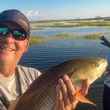
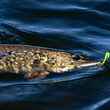
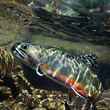
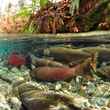
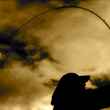

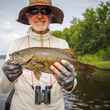
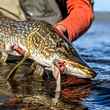

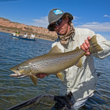

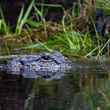

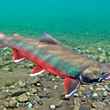
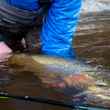

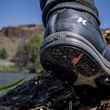
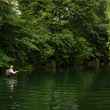
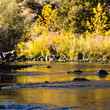



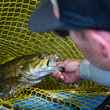

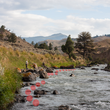

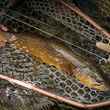
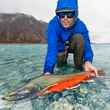
Comments
Ross Kessler replied on Permalink
Interesting article. There has always been a place for ethical anglers on the salmon river. There have been and will always have the snaggers and others who make a dump out of the place. I personally don't bother with salmon season and wait for the crowds to thin and the number of steelhead in the river to increase. There is a trend however to have a pocket of ethical and perhaps elitest pockets on the river. The Douglaston Salmon Run (DSR) increased it's daily price and thereby got rid of a lot of biomass of people ethical or otherwise. This leaves plenty of water for the stodgy looking spey crowd to have a buffer from the unwashed public. The Tailwater Lodge still does not have exclusive waters to fish like the DSR does. This may be its undoing. They essentially put a 4 seasons hotel in the middle of the most heavily fished part of the river. The snaggers, polluters, and deficators will still be in eye-shot of your 4 star accommodations. The good news is that in the 20+ years I've been fishing there the general ethic has gotten much better. It's nice that people will have more choices as far as quality accommodations to choose from. Let's not forget that that Melinda of Malinda's Fly Shop, Phil from the Schoolhouse, and the various owners (currently the Amamski family) of Whitakers have always preached ethical behavior. I apologize for not mentioning other companies up there but these are the ones I have 1st hand experience with.
Chad Shmukler replied on Permalink
Indeed, spots like Malinda's and guides like Walt Geryk (both of which who were mentioned by name in earlier drafts of the article), have long been bright spots on the river. The community just needs more of them, and hopefully the lodge is one more element that will attract the type of anglers that will demand just that.
Tom m replied on Permalink
One thing that seems to be overlooked is the fact that the salmon and steelhead are not native to the river and the hatchery needs to be kept operating. NY will not keep it operating if less and less fisherman come to the river. so the fish and the river need not more and more private water but public water. Its a double edged sword situation.
Just a side note, since the school and property was paid for with tax payer money, what do the tax payers get back from this?
mauro giuffrida replied on Permalink
they, the tax payer, got their child/children educated. when taxes are slashed, teachers salaries cut and denied collective bargaining, one ends with private schools for the wealthy and public property sold to private enterprise.
Frank replied on Permalink
I've stayed at the Lodge multiple times. In my opinion its the best option. I truly hope to see more changes like this on the river.
Pages